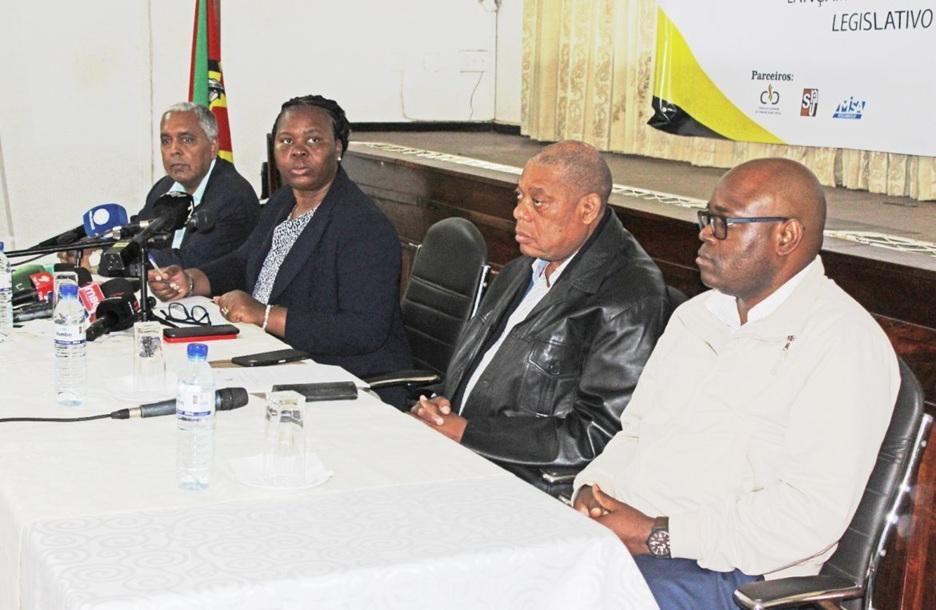Africa-Press – Mozambique. The process of regulating the broadcasting sector in Mozambique is underway, with the drafting of the Broadcasting Law, which will be publicly debated in September, along with the proposed Social Communication/Media Law, which will replace the obsolete 1991 Press Law, Carta reports.
According to the proposal released by the Information Office (GABINFO), which encompasses radio and television providers and operators in Mozambique, the overall programming of broadcasting stations (radio and television) must be filled with at least 80% national content in their daily programming.
Furthermore, “broadcasting service operators are required to notify the Social Communication Regulatory Authority (ARCOS) of their programming schedule, as well as any modifications thereto”. For approval purposes, the document states, notification must be made up to seven days before the implementation of the new schedule.
ARCOS will be the entity to be established by the government with powers to license, regulate, supervise, monitor, and sanction media outlets in Mozambique.
“Programs broadcast by broadcasters must be in Portuguese or in national languages, without prejudice to the possible use of any other language, in the case of programs that meet specific informational needs or are intended for teaching foreign languages,” reads the proposal, emphasizing that programs with national content must dedicate at least 80% of their broadcast time to broadcasting programs originally in Portuguese or the national language.
The proposal, which aims to regulate the radio and television broadcasting sectors for the first time, also states that television programs must include a permanent warning, in text or image form, with the age classification assigned by the ARCOS.
“National broadcasting service operators are prohibited from broadcasting advertising or other types of propaganda contained in programs broadcast by foreign broadcasters, except for sports, cultural, and recreational content, as provided for in contracts,” it reads.
They are also prohibited from “retransmitting broadcasts or content from foreign broadcasters, in whole or in part, live or delayed, except for music, sports, documentaries, comedy, cinematographic works, reality and talk shows, series, radio soap operas, and telenovelas”.
The proposal also stipulates that broadcasting service operators must broadcast at least 18 hours daily, with the exception of community radio and television stations.
“The exercise of broadcasting activities is subject to licensing, through a public tender, opened by decision of the entity overseeing the media sector, which must contain the respective purpose and regulations,” the document states, emphasizing that the exercise of the broadcasting activity is subject to registration with ARCOS when it consists of signal distribution by broadcasting service providers.
The document emphasizes that broadcasts must begin within a maximum period of 90 days after the respective license is granted, and that a six-month interruption in broadcasts will result in the cancellation of the registration and the respective license.
The proposed Broadcasting Law also establishes that broadcasting services must broadcast their programs on the announced day and time and promptly inform the public of any changes or alterations to the schedule, explaining the underlying causes.
“In the event of a temporary interruption in broadcasting for technical reasons, unforeseeable circumstances, or force majeure, information to the public regarding the reasons for this must actually correspond to the event. If the interruption lasts 24 hours or more, the announcement must be broadcast through the closest and most comprehensive information channel, without prejudice to notification to ARCOS. If the interruption lasts for 60 days or more, the license will be cancelled if not previously communicated,” the proposal explains.
“Broadcasting stations may only suspend their broadcasts in unforeseeable circumstances or cases of force majeure, such as natural disasters, civil unrest, and in the following situations: technical interference; serious malfunctions; replacement of production or transmission equipment; equipment maintenance; destruction, serious damage, or fraudulent theft of equipment; or judicially declared insolvency,” it adds.
Once again, the document emphasizes, such interruption of broadcasts, their causes, and the measures for their rapid normalization must be formally communicated to ARCOS by letter signed by an authorized person, within 48 hours of the determining factor being verified.
‘Family time’ content
The proposed Broadcasting Law prohibits the transmission, by free-to-air broadcasting services (free-to-air), during family time, of inappropriate content or any other content that may affect family values, particularly those of children and adolescents.
The document considers inappropriate content to include violence, inappropriate language, sexual scenes, or drug use.
It also considers family time, the time of day when the content shown must be appropriate for the entire family, especially children and adolescents. However, it does not specify the time period. “Providers of conditional access services must promote the use of access control systems for the aforementioned content, through parental control technology,” reads the proposal.
Furthermore, the proposal states that broadcasting service providers (satellite, cable, or terrestrial) must transmit, mandatorily and free of charge, the channels of the television operator holding the public service concession. In the ordering and presentation of their channel schedules, priority must be given successively to national broadcasting service providers offering general, general information, scientific, educational, or cultural content, taking into account their coverage scope and access conditions.
The proposal also states that the channel schedules of subscription broadcasting service providers via terrestrial, satellite, or cable, including private subscriptions and conditional access services, are also subject to registration with ARCOS.
“Changes to the channel schedule or their access conditions must take into account the obligations of diversification and pluralism and respect for consumer rights,” the document states, adding: “Consumers must be notified 30 days in advance of any changes to the channel schedule.”
Under the proposal, broadcasting services are classified into five categories: their scope (national, regional, provincial, local, and international); their applicable ownership regime (public, private, and community); content (general and thematic); its typicality (television service and radio service); and access regime (restricted and unrestricted).
For More News And Analysis About Mozambique Follow Africa-Press






